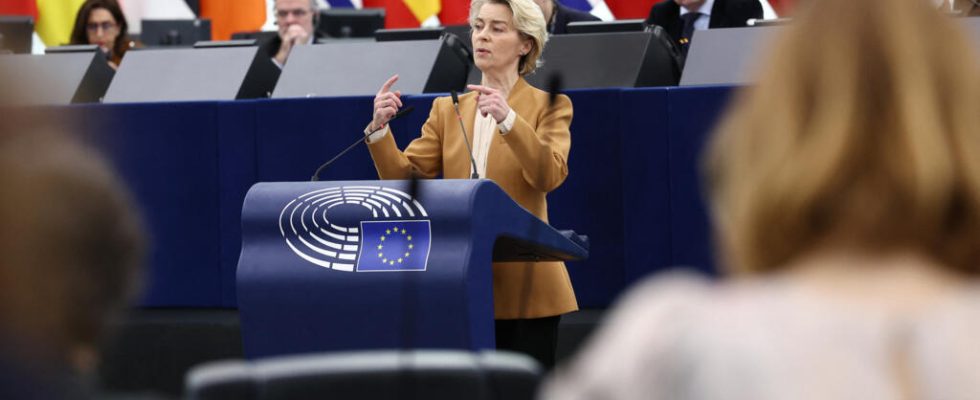The European Commission is proposing a 90% reduction in EU greenhouse gas emissions by 2040 compared to 1990, with carbon neutrality in its sights in 2050. A proposal from the Commission a few months before the elections European and in the midst of farmers’ discontent against, among other things, environmental regulations.
3 mins
Aiming now for a 90% reduction in greenhouse gas emissions by 2040 should allow governments, the economy and citizens to prepare and plan for an inevitable ecological transition faced with the scale of the climate crisis. It is also about “ a clear message » aimed at investors, explains the European Commission which wants a “ just transition ” And “ guaranteeing the competitiveness of the industry “.
The idea of this plan Climate 2040 is to reduce polluting fossil fuels, which are still largely imported, by 80% and to switch to low-carbon electricity produced on European soil. And thus to guarantee the energy sovereignty of theEuropean Union. The Commission plans to electrify half of the European economy, compared to only 22% today, and wants to develop factories for solar panels, wind turbines, batteries, heat pumps and renewable hydrogen.
This transition has a cost: 1,500 billion euros per year, according to Brussels. To achieve this objective, all sectors such as transport, industry, construction and even agriculture will have to transform. “ The European Commission plans to electrify 50% of our economy. This means that we will have to deploy electric vehicles, heat pumps much more quickly, electrify industrial processes so that they no longer rely on gas or coal, etc. », Comments Neil Makaroff, director of a think tank on the ecological transition of the European Union.
“ Now we need to build a more social suite »
But for the moment, the Commission is careful not to go into details and is simply launching a dialogue because it finds itself weakened a few months before the European elections and in the middle of the farmers’ protest movement. To try to calm people’s minds, Wopke Hoekstra, European Commissioner in charge of climate action, explained this Tuesday before Parliament that if reducing emissions is necessary in the face of the climate crisis, this should not penalize the economy. still largely dependent on fossil fuels, nor penalize European citizens.
“ There is no doubt: we must act for the climate and this requires us to prepare “, he pointed out, believing that European environmental policy should be carried out in cooperation with all Member States and be based on two pillars: “ the first is climate action. And the second pillar that we must build alongside climate action is that of just transition, competitiveness, equity. “.
To achieve the goal, we must accelerate efforts. Policy changes must concern all sectors while what we see is permanent support for agribusiness and an agricultural model that continues to emit greenhouse gases instead of supporting agriculture sustainable development that could be part of the solution to climate change.
Chiara Martinelli, director of the Climate action network Europe
Mr. Makaroff shares the urgency of greening the European economy. “ The Americans and Chinese are investing enormously in the ecological transition. They are clearly winning an industrial race for ecological transition on a global scale. If Europe is not able to unlock massive investments, it very quickly risks being downgraded from an economic and industrial point of view. », he analyzes. And to add: “ Now, we must build a more social suite that supports European citizens a little more in this transition. “. Already a big challenge for the next Commission which will be set up after the elections.
Read alsoClimate: the European Parliament says “yes” to the reform of its carbon market
